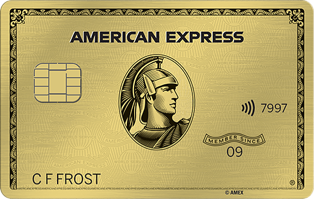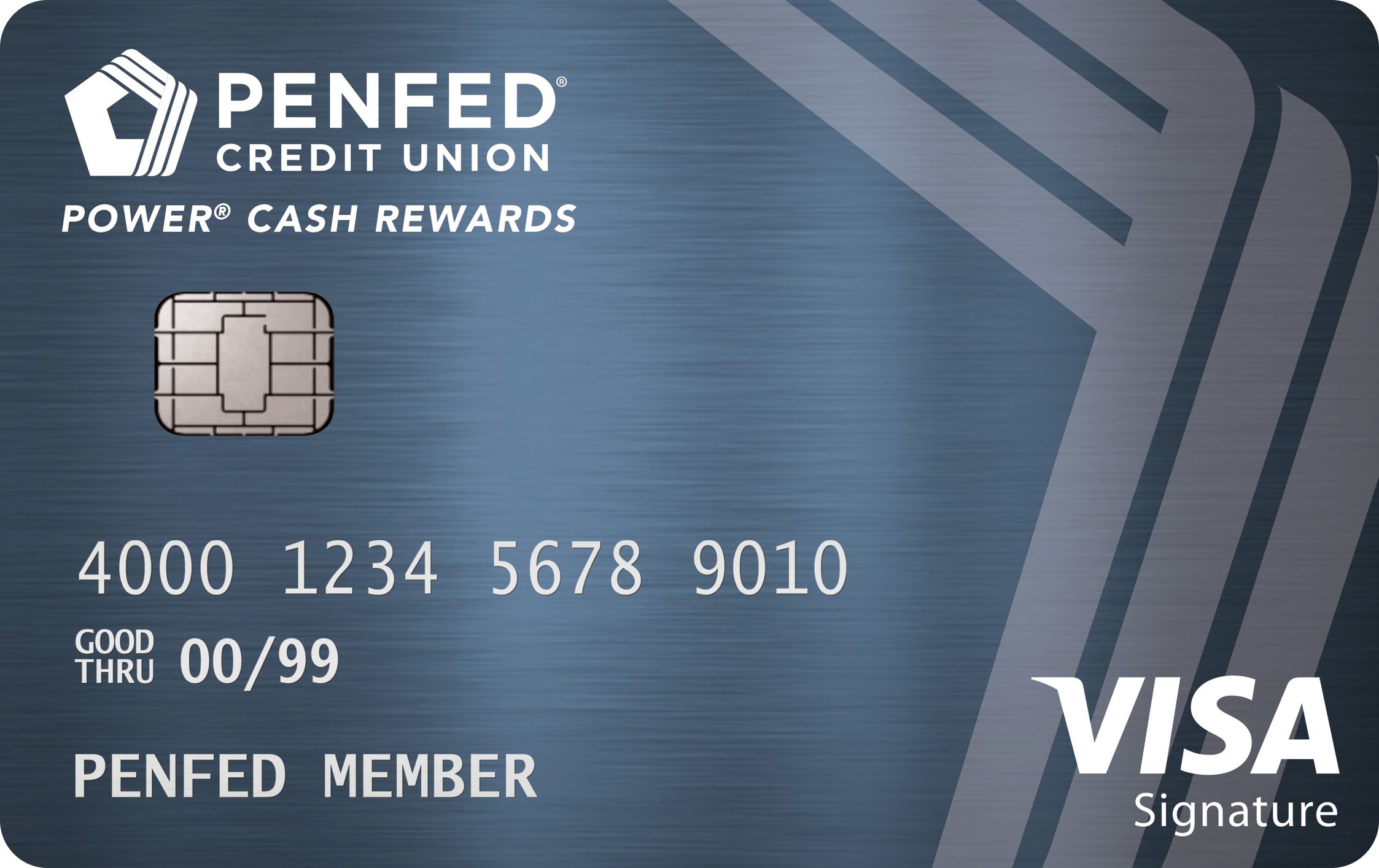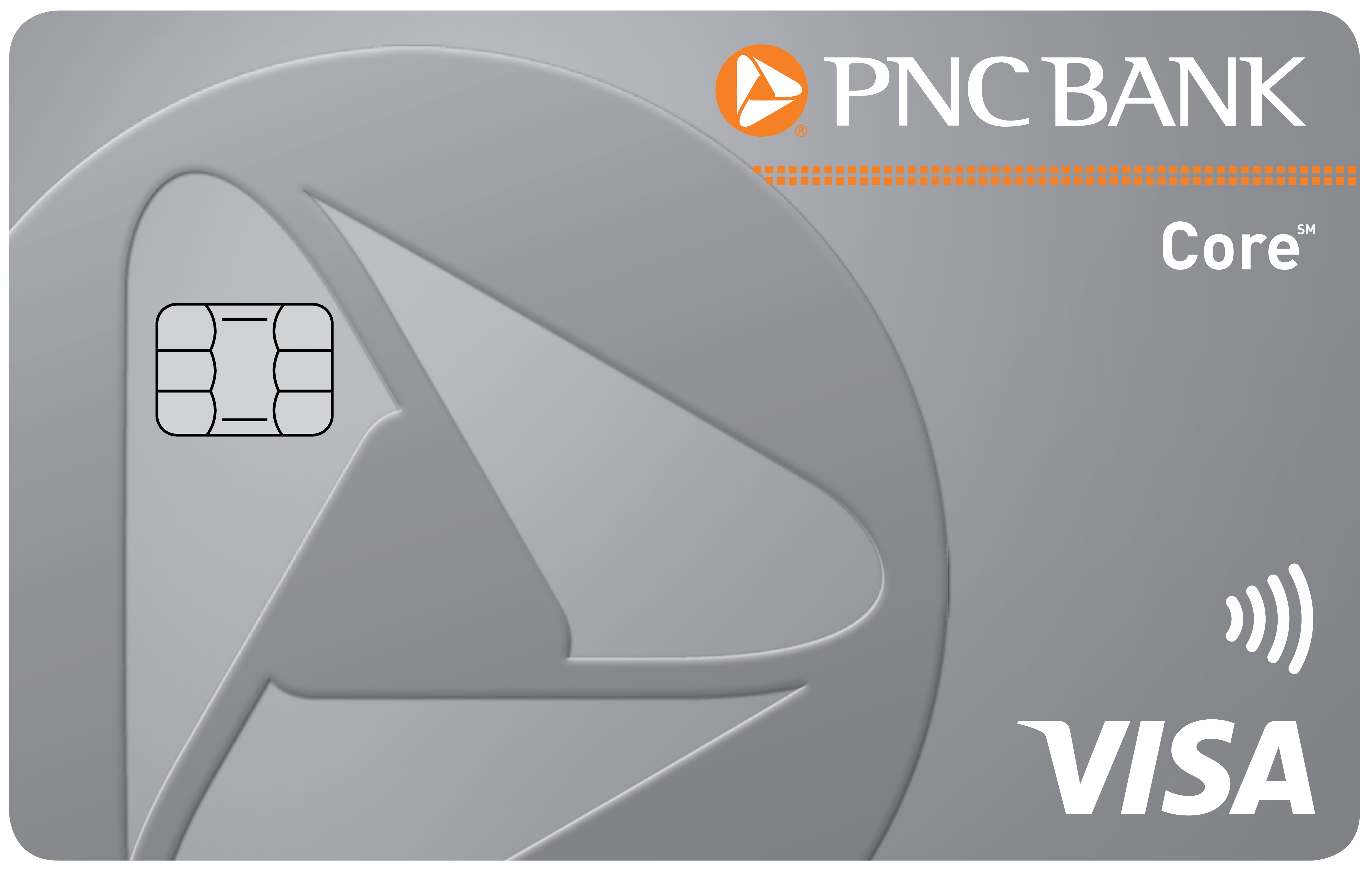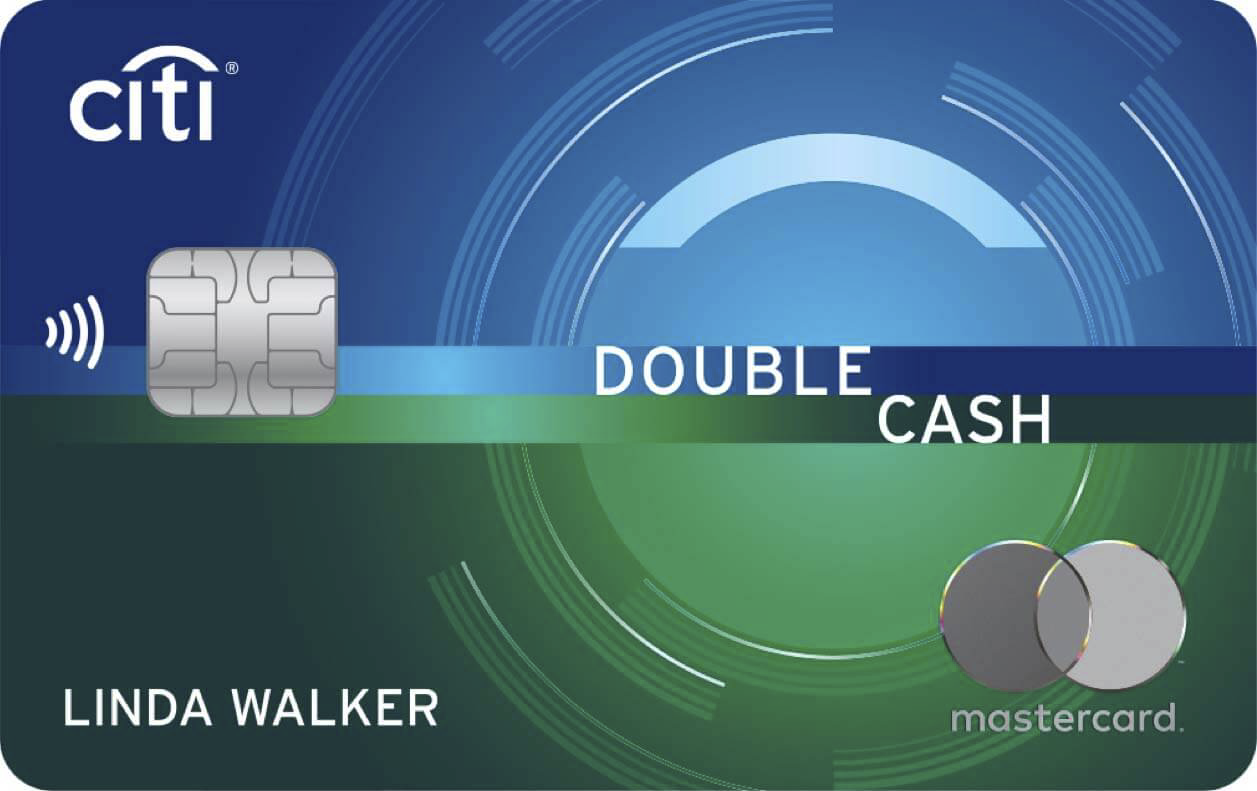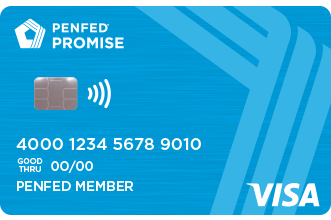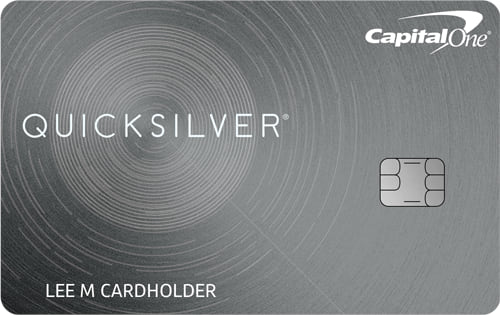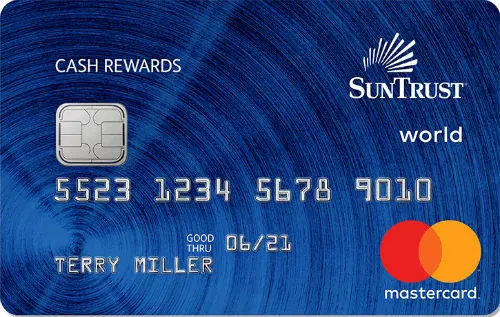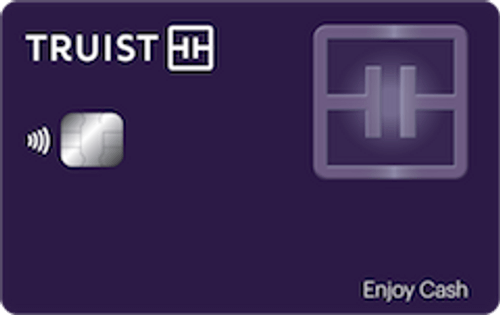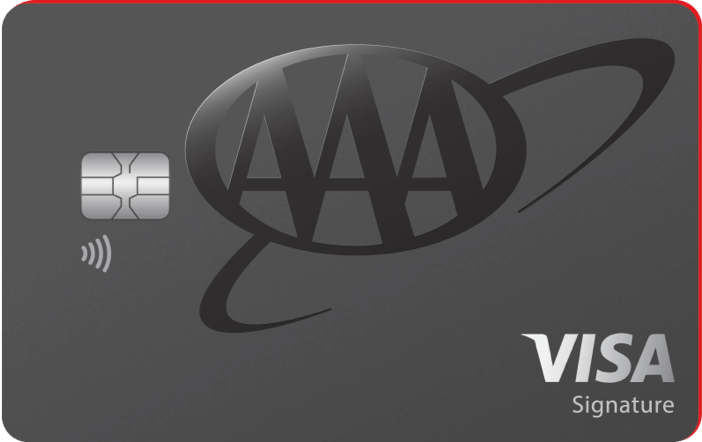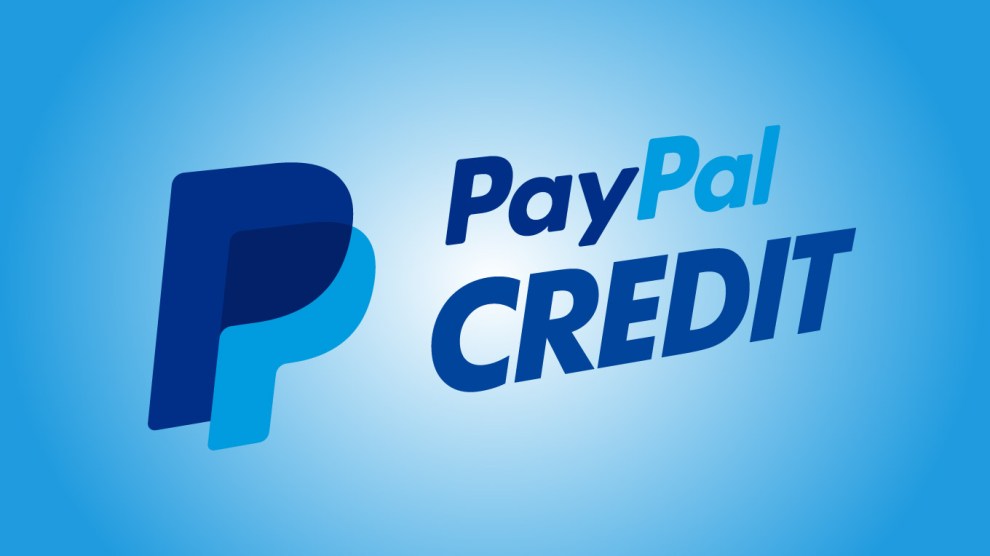- myFICO® Forums
- FICO Scoring and Other Credit Topics
- Personal Finance
- Re: 3 Months Salary
- Subscribe to RSS Feed
- Mark Topic as New
- Mark Topic as Read
- Float this Topic for Current User
- Bookmark
- Subscribe
- Mute
- Printer Friendly Page
3 Months Salary
Is your credit card giving you the perks you want?
Browse credit cards from a variety of issuers to see if there's a better card for you.
- Mark as New
- Bookmark
- Subscribe
- Mute
- Subscribe to RSS Feed
- Permalink
- Report Inappropriate Content
Re: 3 Months Salary
@Kree wrote:
@Anonymous wrote:
$$ available in credit is not an emergency fund, though. You're placing your ability to get through an emergency in the hands of your creditor who can REVOKE that credit at any time.
Cash in the bank pays for anything you need it to whenever you might need it.
Now here is an important point of view. The revoking of credit. I had not considered this aspect. I've only ever seen credit lines decrease when people are chronically delinquent on payments. Now I must look at fine print, to see if random decreases are allowed. Probably yes, but under what circumstances, how much, and how often.
Cheers,
CLD's happen all the time for many reasons beyond what you do with your own cards/what is happening with your credit profile. I never had a late payment on anything before the recession in 2008. Lenders all of a sudden got conservative and starting CLD'ing left and right. My somewhat high utilization then skyrocketed and my scores tanked. All while I didn't do anything different.
- Mark as New
- Bookmark
- Subscribe
- Mute
- Subscribe to RSS Feed
- Permalink
- Report Inappropriate Content
Re: 3 Months Salary
@iced wrote:Credit cards are not money. Credit cards are not spending power. Credit cards are not an extension of your assets. All credit cards should be seen as is a means by which you can spend your already acquired assets/wealth. That is to say, if you cannot buy something right now with cash, you should not buy it right now with a credit card.
When it comes to paying down CC debt, you do need to do a bit of juggling as you are now factoring the value in having a safety net with the significant cost of carrying debt. My advice in this situation is conditional:
- If you are not confident that your current financial situation will remain stable for the next 6 months, don't touch your emergency savings. This means if you think the likelihood of your needing it is more than about 5%, leave it be. It's far better to deplete savings to get through a tough spell than to take out 20% loans (which is what CCs basically are) to get through a tough spell. Keep paying down your debt as you are currently.
- If you are highly confident your current financial situation will not change for the worse for the next 6 months, dip into your emergency savings by up to whatever you can replace in 6 months and make some large CC payments today. The reduction in balance will immediately reduce your monthly interest paid and make future payments go a little further toward paying them down. At the same time, slowly replace what you spent from your emergency fund over that time. Once replenished, rinse and repeat if necessary.
Do not deplete your savings to the point that a minor to moderate emergency (car repair, emergency room) will force you to put some or all of that emergency on a card. This is because of what I said at the top - never, ever use credit cards to pay for something you can't afford to buy with cash. Once you start needing credit cards to get through the month, you're in danger. It's very difficult to get back from that point without a major change to your financial situation, and unfortunately that major change is often of a bad form, such as bankruptcy.
But I could contend that not paying off CCs is like taking out a 20% loan to fudn your emergency fund. And a definite loan today will always trump a maybe loan in the future. I do agree that career outlook is important to the decision though, risk factors aren't easily quantified in this situation, but they do exist.
A second thought, as I like your conditional thinking, What if there is a guaranteed asset bump in 6 months. For example a guaranteed large tax return due to various factors. The interest paid over 6 months is much less than over 5 years, but the chance of having an emergency is also smaller due to the shorter time period. Would you be more likely or less likely to recommends paying down debt with some or most of a savings? What about if there is no current savings, would 100 a month be better applied to CCs as there is no chance of building an emergency fund within 6 months, or to save what you can, as you can?
- Mark as New
- Bookmark
- Subscribe
- Mute
- Subscribe to RSS Feed
- Permalink
- Report Inappropriate Content
Re: 3 Months Salary
@Kree wrote:But I could contend that not paying off CCs is like taking out a 20% loan to fudn your emergency fund. And a definite loan today will always trump a maybe loan in the future. I do agree that career outlook is important to the decision though, risk factors aren't easily quantified in this situation, but they do exist.
A second thought, as I like your conditional thinking, What if there is a guaranteed asset bump in 6 months. For example a guaranteed large tax return due to various factors. The interest paid over 6 months is much less than over 5 years, but the chance of having an emergency is also smaller due to the shorter time period. Would you be more likely or less likely to recommends paying down debt with some or most of a savings? What about if there is no current savings, would 100 a month be better applied to CCs as there is no chance of building an emergency fund within 6 months, or to save what you can, as you can?
Your first contention has merit in more advanced states of financial planning, but not at the basic emergency fund level. If you have a solid emergency fund in place and assets to protect you from most possible scenarios, the process of weighing the income generated from invested/saved money versus the cost of paying out interest is indeed the key driving factor, but I would also contend that the risks in those situations are much lower since you do still have a financial safety net regardless.
When speaking about emergency funds as the asset, you're not comparing a 20% loan to the lower interest earned in savings - you're trading a 20% loan for your ability to live comfortably. I for one do not want to borrow against my ability to survive an accident or job loss, because if it does happen, the consequences are far worse than 20%. In this case, I would not only still have my previous CC balances to contend with, but now I would have new expenses with no way to fund them except with additional 20% loans, if even that. I would not trade the risk of losing my well-being for money saved on interest.
Your statement about a future tax returns falls in line with my conditional recommendation. If you know/are guaranteed income in the next 6 months that you know can replace what you take out of emergency savings, and you are highly confident that your situation between now and then won't adversely change, then go for it. Just be very sure that you will receive those funds and that you will replace the spent funds once received. For the confidence test, would you bet your well-being on it? After all, if the tax return fails to come through and something else comes up that you needed those emergency savings for, that may just be exactly what you lose.
If I had nothing today and was just starting out, that 100 is still better applied toward building an emergency fund. Saving can be addicting, and once the money starts piling up, it has a strange way of motivating one to budget well, live within one's means, and in turn save even more money, which in turns also makes paying down CC debt easier. Here's the order in which I tackled debt and built savings from $0:
1. Emergency savings to 3 (or 6 or 12, depending on risk/occupation) months.
2. Contribute to tax-advantaged retirement savings (401k/403b/etc) to a point my employer match is maximized, if applicable.
3. Clear CC debt (any debt over about 9% APR). This is the point where it becomes important to weigh the money lost from interest payments against income generated from savings. You will notice everything after here is prioritized from highest amount of return on investment to lowest.
4. Maximize ESPP that offers a discount on purchase, if applicable. If you cannot also complete item 5, I strongly recommend you auto-sell purchased stocks such that you can also complete item 5. Any excess you can save or sell as you wish.
5. Maximize tax-advantaged retirement savings ($18,000 401k + $5,500 Roth + $3,400 HSA), if applicable. Self-employed/non-employer-sponsored people have a similar tax-advantaged vehicle, I believe.
6. Divide extra income between paying down highest-interest loans under 9% (in my case, currently a student loan, currently 4.75%) and additional investments/savings. Once the student loan is cleared, I will snowball all of those extra funds each month into balooning my mortgage payment (currently 3.75%). The reason I tackle these last is because even though I'm spending money on interest on them today, the growth I receive from my retirement and stock vehicles is greater than the interest I pay. How this is split is also pretty open to the individual. For me, I throw a modest amount annually (around $5,000) toward extra payments on my loans and the rest is saved or invested.
- Mark as New
- Bookmark
- Subscribe
- Mute
- Subscribe to RSS Feed
- Permalink
- Report Inappropriate Content
Re: 3 Months Salary
Having 3 or 6 months of expenses in the bank is a great goal. Easy to do if you have no debt and seemingly impossible to do if you are carrying credit card debt.
I suggest the YNAB way for those in the latter category. If you have debt, the first step is to stop creating new debt and try to stop living pay check to pay check. This is where YNAB can help, using last months money to pay this months bills.
I think there is a balance between having money in the bank and maximizing returns by paying off debt with interest.
I wish someone would have talked with me about FIRE when I was young.
- Mark as New
- Bookmark
- Subscribe
- Mute
- Subscribe to RSS Feed
- Permalink
- Report Inappropriate Content
Re: 3 Months Salary
Now our local groups have around 30-40 "kids" each. And we literally kick anyone out who violates the basic rules of financial independence more than one time, so consider the turnover.
My calculations based on my investments from 18-41 show that every $1 I spent at age 17 was worth $1000 by age 40. I wasted $2 million (at age 40) on superfluous luxury spending at 17. Compound interest and investments mean a smart kid shouldn't even bother with high school.
More and more wise parents bring their 13 year olds to FIRE meetups and more and more intelligent kids are skipping useless education in exchange for the freedom to be millionaires by age 25.
I love seeing it.
- Mark as New
- Bookmark
- Subscribe
- Mute
- Subscribe to RSS Feed
- Permalink
- Report Inappropriate Content
Re: 3 Months Salary
I wish I had known about FIRE when I was young also.
At 37, retiring by 40 isn't going to happen, but I'm seriously going to see what I can work out to do it by 50-55. I'm starting in a good spot. I have nearly no living expenses and will be completely debt free in 12 months.
- Mark as New
- Bookmark
- Subscribe
- Mute
- Subscribe to RSS Feed
- Permalink
- Report Inappropriate Content
Re: 3 Months Salary
I got lucky because my mentors at 15 (this is in 1989 mind you) told me that owning a condo at 18 would pay more dividends than a useless college degree at 21. But back then, FICO scoring wasn't a concern or even really brought up at all. None of my mentors had good credit specifically, hard money loans were most common, etc, etc.
The thing is, at 37 it's not too late by any means -- the bigger issue is declining energy levels. Driving for Uber 20-30 hours part time a week isn't too bad at 25, it's harder at 37 but it's doable. That extra $400-$600 a week (if you schedule well and find hot spots) adds up over 2 years to $40,000-$60,000 which in some areas is the amount of cash you need to buy out a desperate seller in 1 bedroom rental. After 4-5 years, you can have 2-3 rentals ($15,000-$20,000 residual income).
Cumulative and compound gains add up crazy fast. I recently watched a 25 year old kid, total financial loser, massive student loan debt, $0 in savings spend 2ish years of insane hard work (90 hours a week doing 6 different gig economy apps PLUS his full time job) and he's bought 3 rentals for cash now. By age 31 I figure him to be a millionaire on paper.
These are financial lessons that parents and schools refuse to teach kids. One of the best stories I've seen personally is a 13 year old landlord. The kid's single father worked it out when the kid was young, and taught him at a young age to do basic maintenance. At 13 the kid took over the rental agreement entirely and even handles minor repairs. No way he's going to waste time in college, I'd be surprised if he doesn't GED out of useless high school by 15. So good to see the future and it isn't some trust fund spoiled brat slinging useless VC in the bay area.
Having massive cash on hand means you can negotiate the best price for anything you need. Anything. Buying things on credit means you're subconsciously allowing yourself to overpay. In 2015 when my FICO scores were probably 500 (or lower) I bought a rental for around $50,000 in an area with rents in the $1100 range. The lady was days away from foreclosure notices being mailed, and she just needed enough cash to get out from her mortgage free and clear, and wanted to close the same day as offer.
You can't find those deals with an 850 FICO score because the mortgage companies will take too long to close. So part of building wealthy is FICO score maximizing, but the bigger part is having cash available to make sure you can pay the lowest amount for an asset you want (or need).
5% cash back doesn't sway me if it's something I know I can get for 40% off if I am patient.
- Mark as New
- Bookmark
- Subscribe
- Mute
- Subscribe to RSS Feed
- Permalink
- Report Inappropriate Content
Re: 3 Months Salary
@Anonymous wrote:I got lucky because my mentors at 15 (this is in 1989 mind you) told me that owning a condo at 18 would pay more dividends than a useless college degree at 21. But back then, FICO scoring wasn't a concern or even really brought up at all. None of my mentors had good credit specifically, hard money loans were most common, etc, etc.
The thing is, at 37 it's not too late by any means -- the bigger issue is declining energy levels. Driving for Uber 20-30 hours part time a week isn't too bad at 25, it's harder at 37 but it's doable. That extra $400-$600 a week (if you schedule well and find hot spots) adds up over 2 years to $40,000-$60,000 which in some areas is the amount of cash you need to buy out a desperate seller in 1 bedroom rental. After 4-5 years, you can have 2-3 rentals ($15,000-$20,000 residual income).
Cumulative and compound gains add up crazy fast. I recently watched a 25 year old kid, total financial loser, massive student loan debt, $0 in savings spend 2ish years of insane hard work (90 hours a week doing 6 different gig economy apps PLUS his full time job) and he's bought 3 rentals for cash now. By age 31 I figure him to be a millionaire on paper.
These are financial lessons that parents and schools refuse to teach kids. One of the best stories I've seen personally is a 13 year old landlord. The kid's single father worked it out when the kid was young, and taught him at a young age to do basic maintenance. At 13 the kid took over the rental agreement entirely and even handles minor repairs. No way he's going to waste time in college, I'd be surprised if he doesn't GED out of useless high school by 15. So good to see the future and it isn't some trust fund spoiled brat slinging useless VC in the bay area.
Having massive cash on hand means you can negotiate the best price for anything you need. Anything. Buying things on credit means you're subconsciously allowing yourself to overpay. In 2015 when my FICO scores were probably 500 (or lower) I bought a rental for around $50,000 in an area with rents in the $1100 range. The lady was days away from foreclosure notices being mailed, and she just needed enough cash to get out from her mortgage free and clear, and wanted to close the same day as offer.
You can't find those deals with an 850 FICO score because the mortgage companies will take too long to close. So part of building wealthy is FICO score maximizing, but the bigger part is having cash available to make sure you can pay the lowest amount for an asset you want (or need).
5% cash back doesn't sway me if it's something I know I can get for 40% off if I am patient.
The approach sounds good, though I have my concerns about the end result. It feels like one trades an early retirement in exchange for a frugal lifestyle in perpetuity. I save around 40% of my income for retirement today, but when I do the math it's still not going to let me retire much sooner than 70. The only big advantage I'm seeing is that all of my assets are moving into tax havens, either via Roth accounts or via investments subject to capital gains rather than income taxes so I'll have more income in retirement than I do today. That's a good thing because I plan to spend a lot more than what I do today when I retire.
Real estate is going to be very location-dependent. For example, in my local area, the current market is such that all-cash offers with no contingencies are the norm, and if you come to the table with so much as an inspection contingency, you risk losing out to an investor (possibly such as yourself) who will throw cash at the property with no questions asked. Forget it if you have a contingency on your existing place selling or even a contingency on mortgage approval. In other words, the difference here is that instead of one of you fighting against 2-3 cash-poor bidders, there's 20 of you fighting against 100 cash-poor bidders so the advantage of being cash-rich is negated.
As a side note, I would not dismiss the VC brats so quickly. Real estate, VC, and the stock market (which is really just publicly traded VC) are all means to wealth and all of them need each other. After all, companies wouldn't be able to go public without VC first getting them on their feet, and then the people raking in cash off owning those public companies wouldn't have the wealth to drive up the real estate market you're invested in. I for one much prefer the equity route to wealth as I don't have to deal with people (tenants, maintenance crew, etc), but that's the beauty - there's more than one road to success.
Anyway, I veered OT just a bit.
- Mark as New
- Bookmark
- Subscribe
- Mute
- Subscribe to RSS Feed
- Permalink
- Report Inappropriate Content
Re: 3 Months Salary
I've never once had a mortgage in my life. Mortgages are a great way to overpay for a depreciating asset and restrict you from exiting the market.
When I sold 3 investment properties in 2006, I sold within a week of listing it (not on the MLS). When I bought my most recent home in 2015, I paid cash. I made an offer, offered to close same day, they needed 2 weeks so I granted it. Waived inspection, waived title insurance, waived everything. They needed to get out. They had 4-6 offers 15-20% higher than mine, but I was the only one ready to close that day without contingencies.
I live a pretty basic lifestyle at home -- no cable, no internet, no TV. But I vacation around 30 weeks a year, so there's that. I'd prefer to spend time with people I care about than spend time screaming and crying at a TV. It isn't a loss to my quality of life.
I agree though, working til 70 is a likely option if you're into luxury consumption! I don't care for it. Everything I buy I weigh against the future value of that cash or the profits from acquiring a money generating asset.
My primary home is on AirBNB. It brings in about $8000 a year -- more when I travel of course. I have no issue renting it out. My car is on Turo. It generates around $60 a day when I don't need it or use it (which is most days). Even my power tools in the garage are rentable. All those incomes are "free money" basically.
- Mark as New
- Bookmark
- Subscribe
- Mute
- Subscribe to RSS Feed
- Permalink
- Report Inappropriate Content
Re: 3 Months Salary
You can have both cash and credit.
Cap One gives 18 months 0% offers that cost 2% flat fee.
I write myself a check and deposit it, then used card to charge everything, then PIF.
10k cash flow cost $200 for 18 months BEFORE getting my 2% back on all cc purchases.
Net 0 for cost on cash flow buffer.
DON'T WORK FOR CREDIT CARDS ... MAKE CREDIT CARDS WORK FOR YOU!

